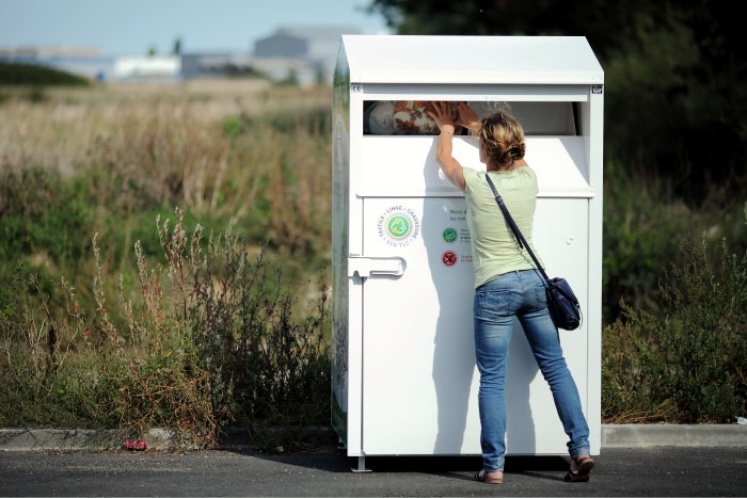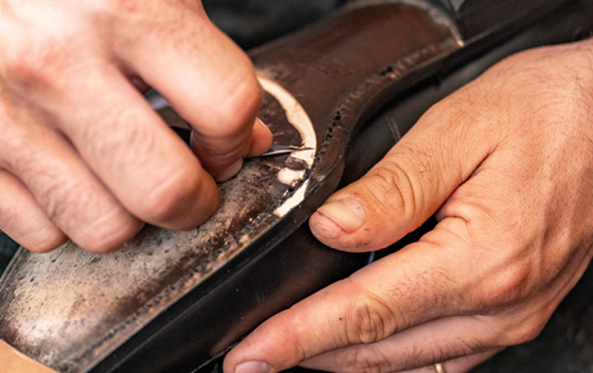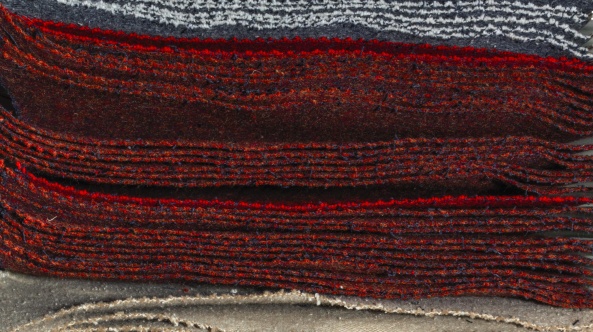
The legal framework

EPR in clothing, household linen and footwear
EPR in textiles: understanding your role and ours.
Do you manufacture, import or sell clothing, household linen or footwear on the French market for end consumers? If so, you are subject to Extended Producer Responsibility (EPR) and are responsible for the prevention of waste and end-of-life management of your products.
This principle, which is included in the Environment Code, puts producers, brands and retailers at the heart of the transition towards a circular economy.
EPR is a simple concept: its is based on the polluter-pays principle, meaning that anyone who places a product on themarket is responsible for it until the end of its life cycle.
Marketers are therefore responsible for to contributing to the management of the waste generated by their products.
In the Clothing, Household linen and Footwear sector, this means involving stakeholders at every stage: from production and consumption to repair, , collection, sorting,reuse and recycling.
Who is concerned?
All marketers are subject to the Clothing, Household linen and FootwearEPR for, whether they are:
- a brand
- a distributor
- a manufacturer
- an importer
- an online seller
- a marketplace
As soon as a Clothing, Household linen and Footwear product is made available to the end consumer on the French territory, your company is required to fulfil this legal obligation, by registring with the approved eco-organisation Refashion.
Does it applies to you? Ensure your compliance!

Need help?
For further information:
For any questions, please consult the FAQ or complete the contact form
A dedicated hotline is available Monday to Friday, 9am to 5pm: +33 (0)1 89 16 94 06
A driver for changing the modele
Why must products carry the Triman logo? What is the purpose of the prevention and eco-design plan? What are the other obligations under the AGEC law?
The French Anti-Waste Law for a Circular Economy (AGEC), aims to accelerate the shift in production and consumption models in order to reduce waste and preserve natural resources, biodiversity, and the climate.

What is the French AGEC Act?
An important milestone for the sector
Act No. 2020-105 of 10 February 2020 to reduce waste and promote the circular economy (AGEC in French) significantly accelerates the ecological transition. it represents a major milestone for the Clothing, Household linen and Footwear sector, which is fully committed to sustainable development. At the same time, it complements initiatives already implemented to achieve the same goal.
The implementation details of the AGEC law are gradually defined through regulatory provisions (decrees and orders).
The legal framework
Article 62 AGEC Act - Mandatory Display of the Repair Fund:
In accordance with Article L.541-10-4 of the Environment Code, Refashion supports you in complying with the legal requirement to provide information about the Repair Fund.
Article 72 AGEC Act - Prevention and Eco-design Plan:
The AGEC law establishes, through Article 72, the requirement for a prevention and eco-design plan.
Find all the information on how to draft your prevention and eco-design plan on this page.
Sorting labels Article 17 AGEC Act
The sorting information signage and Triman logo were approved on February 1st, 2022, and detailed in implementing Decree No. 2021-835.
This signage became compulsory on all Clothing, Household Linen and Footwear products placed on the market in France from February 1st, 2023.
 To support you in rolling out this signage:
To support you in rolling out this signage:
- The detailed guide to download (in English)
- Webinar replay
- Refashion FAQ.
Article 13 AGEC Act - Consumer information on environmental qualities and characteristics:
Pursuant to Article R.541-221 VI of the Environment Code, Refashion informs its members as follows:
“Refashion considers that no information regarding the recyclability of clothing, household linen and footwear products needs to be provided to consumers. Therefore, you do not need to include any information on this subject in the “Product sheet on environmental qualities and characteristics”.
For more information:
- The detailed explanatory note
- The FAQ providing information on recyclability with reference to implementing Decree No. 2022-748
- The FAQ published by the French Ministry for the Ecological Transition on the Article 13
The eco-modulations
The display arrangements regarding bonuses and penalties will be communicated to you by Refashion at the time of declaring the references eligible for eco-modulations.
Article 2 Climate and Resilience Act - Environmental labelling:
In France, environmental labelling for textiles and footwear is provided for by the 2021Climate and Resilience Act. On May 14, 2025, Europe approved the draft decree for French environmental labeling and authorized its implementation. Environmental labeling for textiles remains voluntary for now, and the decree governing its use has been in effect since October 1, 2025.
Need help?
For further information:
For any questions, please consult the FAQ or complete the contact form
A dedicated hotline is available Monday to Friday, 9am to 5pm: +33 (0)1 89 16 94 06






